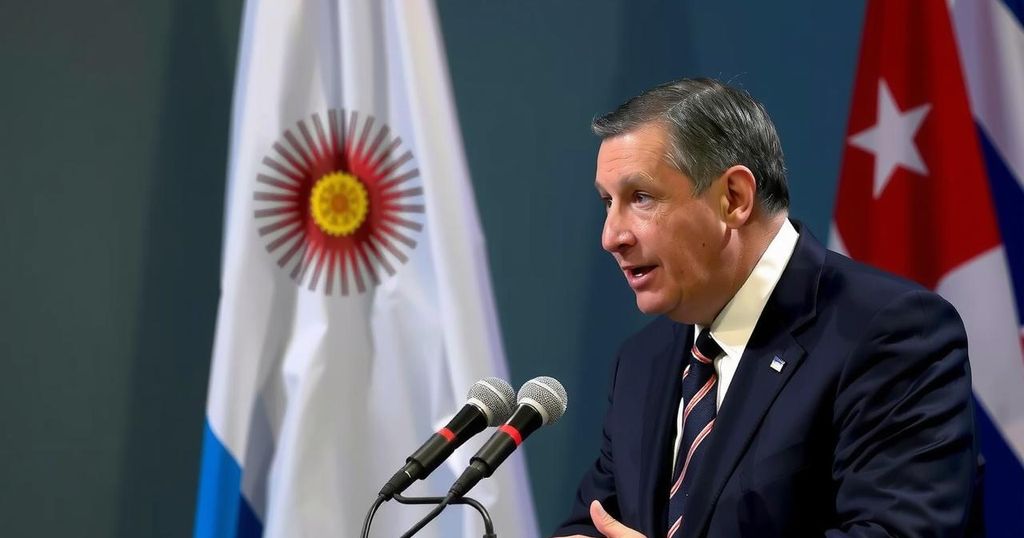Argentina’s President Javier Milei Dismisses Foreign Minister Over Cuba Embargo Opposition

President Javier Milei of Argentina has dismissed foreign minister Diana Mondino after the country voted to lift the U.S. economic embargo on Cuba. This decision marks a significant pivot in Argentina’s foreign relations, which previously favored Cuba under former governments. Gerardo Werthein has been appointed as Mondino’s successor. Milei’s administration has signaled a staunch opposition to the Cuban government, emphasizing human rights and democratic values in its foreign policy.
In a significant political move, President Javier Milei of Argentina has dismissed his foreign minister, Diana Mondino, following the nation’s recent vote in favor of lifting the United States economic embargo on Cuba at the United Nations. This vote marked a notable departure from Argentina’s previous alignment with U.S. and Israeli policies, with only these two countries opposing the resolution among 187 nations that supported it. Milei’s decision to remove Mondino comes as she expressed opposition to the economic measures against Cuba, contradicting the administration’s stance. The president has appointed Gerardo Werthein, Argentina’s ambassador to the United States, as her replacement. Following the decision, Milei’s office emphasized, “Our country is categorically opposed to the Cuban dictatorship,” signalling a shift toward a more hardline foreign policy. Historically, Argentina under the leftist Peronist government maintained supportive ties with Cuba, advocating for the removal of the embargo which was instituted in the 1960s. Moreover, Cuba has reciprocated this support by backing Argentina’s claims over the disputed Falkland Islands, a territory that has long been a point of contention with the United Kingdom. The statement from Milei’s office articulated the vision for Argentina’s foreign policy: “The country is going through a period of profound changes, and this new stage requires that our diplomatic corps reflect in each decision the values of freedom, sovereignty, and individual rights that characterize Western democracies,” revealing a clear orientation towards defending human rights and condemning non-democratic regimes. Tensions between the president and the foreign ministry had been increasing recently, with Mondino playing a vital role in managing Argentina’s international relations amidst Milei’s often confrontational rhetoric.
The United States imposed an economic embargo on Cuba in 1962 as a reaction to the Cuban revolution that brought Fidel Castro to power. This embargo aimed to pressure Cuba into abandoning its socialist policies for a more capitalist and democratic system. However, despite decades of sanctions, the embargo has failed to facilitate significant political change in Cuba and has instead created persistent diplomatic rifts between the U.S. and several Latin American countries, many of which have opposed the embargo in various international forums. In contrast, Argentina’s foreign policy has fluctuated notably in recent years, transitioning from the supportive stance of the previous government towards Cuba to a more confrontational approach under Milei, who has criticized authoritarian regimes globally.
President Javier Milei’s removal of foreign minister Diana Mondino illustrates a decisive shift in Argentina’s diplomatic stance, especially regarding the U.S. embargo on Cuba. The administration’s new direction rejects previous alliances with Cuba established under past governments and openly confronts regimes viewed as authoritarian. Such changes may redefine Argentina’s position on the international stage, reflecting Milei’s commitment to align foreign policy with ideals of freedom and human rights.
Original Source: www.bbc.com







